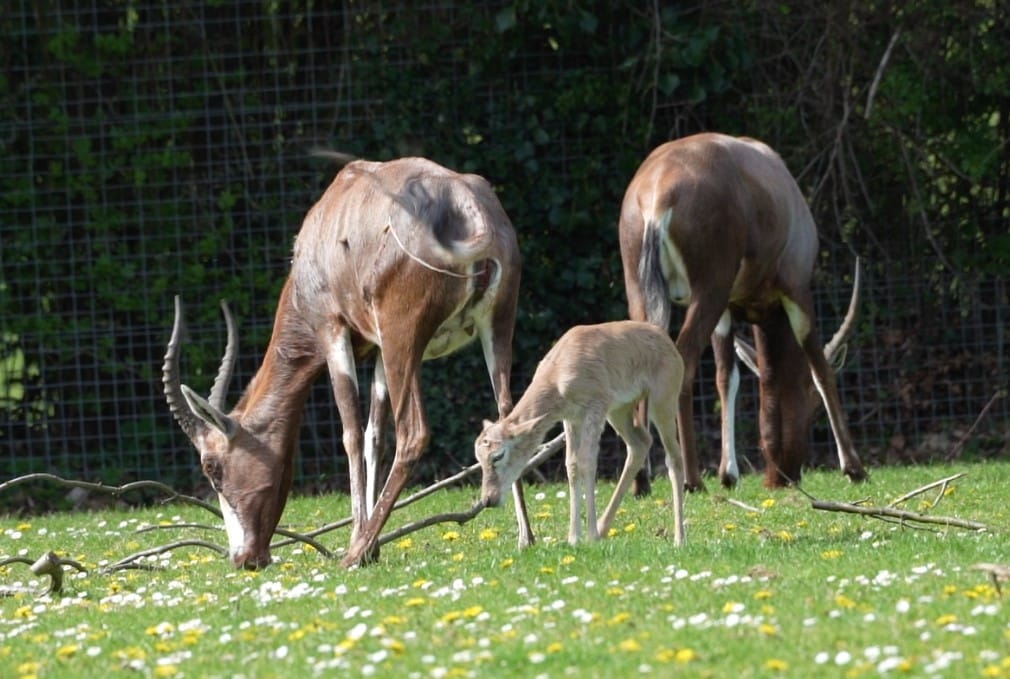Blesbok blessings
May 4, 2023
May 4, 2023

Guests witnessed a very special moment at Marwell on May Day as one of the zoo’s blesbok delivered her calf in full view.
The tiny new arrival was born in the blesbok paddock on Monday afternoon, shortly after 2:30pm.
Within minutes it was finding its feet and making its first wobbly steps witnessed by guests and a number of fortunate photographers.
The young calf can be seen with its parents, mother Vanessa and father Blas, in the blesbok paddock, next to our clouded leopard enclosure.
The sex of the new arrival has not yet been determined and keepers are yet to choose a name.
In the wild, blesbok are native to southern Africa where they graze in herds on open grassland. They travel in single file lines to watering points creating paths as they go.
Calves are able to follow their mothers within 30 minutes of being born and wean around four months of age.
Both male and female blesbok have ringed horns with distinctive white faces and brown bodies. In the wild, males use their horns to “clash-fight” to establish their dominance.
These animals feed mostly in the morning and afternoon resting in shady spots during the mid-day sun. They need regular access to water.
Historically would have been hunted by lions, leopards, spotted hyenas, African wild dogs and cheetahs.
They were also hunted by European settlers and numbers dwindled to around 2,000 by the late 19th century but they have made an impressive recovery since becoming a protected species.
It is thought there are now as many as 55,000 living in protected areas and wildlife ranches and the population continues to increase.